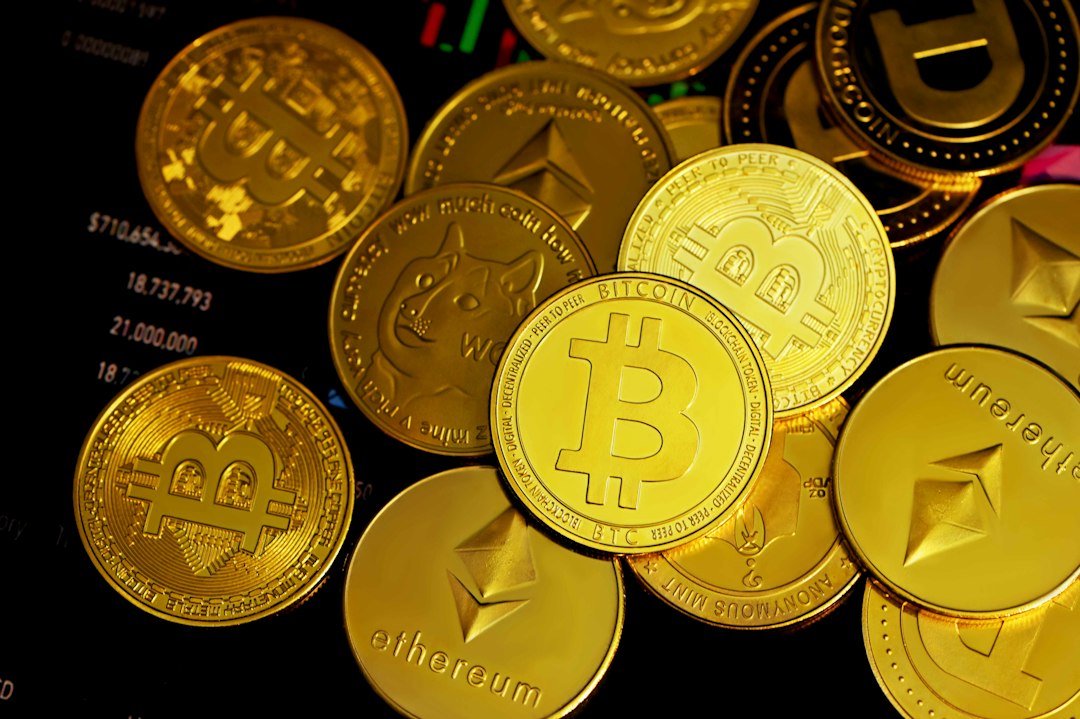Bitcoin: The New Gold? Examining its Store of Value Potential
Welcome to the world of cryptocurrencies, where innovation and technology revolutionize the way we transact and store value. If you’re curious about cryptocurrencies and their potential, you’ve likely come across Bitcoin, the trailblazer of this digital currency revolution. In this article, we will explore the intriguing question: Is Bitcoin the new gold? Specifically, we will delve into Bitcoin’s store of value potential, comparing it to gold, and uncovering the factors that make it a captivating asset in the digital age.
Understanding the Store of Value Concept
Before we jump into Bitcoin’s store of value potential, let’s clarify what it means for an asset to be a store of value. Historically, gold has been considered a reliable store of value. Its scarcity, durability, and widespread acceptance make it an attractive option for preserving wealth. When we say an asset has store of value, it means it can maintain its purchasing power over time, protecting against inflation and economic uncertainties.
Now, let’s bring this concept to Bitcoin.
Bitcoin’s Scarcity
One of the key factors contributing to gold’s store of value potential is its scarcity. Bitcoin, too, shares this characteristic. The maximum supply of Bitcoin is capped at 21 million coins, ensuring that it remains limited. This controlled supply creates an inherent scarcity that strengthens its potential value. Furthermore, Bitcoin’s issuance follows a predictable schedule, reducing the risk of sudden inflation. This scarcity, combined with the increasing demand, contributes to Bitcoin’s store of value potential.
Durability and Portability
When comparing Bitcoin to gold, we find that Bitcoin surpasses the traditional precious metal in terms of durability and portability. While gold is physically tangible, it requires secure storage and protection. On the other hand, Bitcoin exists digitally and can be stored in a digital wallet. This enables easy and secure transportation of wealth across borders. Additionally, Bitcoin’s digital nature eliminates the risk of physical damage, theft, or loss, making it an attractive alternative to gold.
Widespread Acceptance and Accessibility
In recent years, Bitcoin has gained widespread acceptance, making it increasingly accessible to individuals and institutions alike. Major companies, including PayPal and Tesla, have embraced Bitcoin, recognizing its potential as a future currency. Furthermore, the emergence of cryptocurrency exchanges and increasing integration into traditional financial systems has facilitated Bitcoin’s acceptance as a legitimate asset. These developments solidify Bitcoin’s store of value potential by boosting its liquidity and further broadening its user base.
Bitcoin and Diversification
While gold has long been regarded as a diversification asset in investment portfolios, Bitcoin offers a new opportunity for diversification. Traditional assets like stocks and bonds often move in sync, making it challenging to mitigate risks. Bitcoin, being a distinct asset class with a correlation that is not strongly tied to traditional markets, allows investors to diversify their holdings and potentially hedge against market downturns. This unique characteristic adds another layer of value to Bitcoin as a store of value.
The Future of Bitcoin as a Store of Value
As Bitcoin matures and gains more acceptance, its store of value potential is likely to strengthen. The growing recognition from institutional investors, governments, and the general public is propelling Bitcoin into the mainstream. Additionally, ongoing technological advancements, such as the Lightning Network, aim to enhance Bitcoin’s scalability and transaction speed, addressing some of the concerns surrounding its practical use. These developments further solidify Bitcoin’s position as a reliable and globally recognized store of value.
FAQs
Q: Is Bitcoin a completely safe store of value?
A: While Bitcoin offers unique advantages as a digital store of value, it is essential to remember that it operates within a volatile market. The value of Bitcoin can fluctuate significantly, so it is crucial to consider your risk tolerance and conduct thorough research before making any investment decisions.
Q: Can Bitcoin replace gold as a store of value?
A: While Bitcoin is gaining traction as a potential store of value, gold continues to have deep-rooted historical and cultural significance as a reliable asset. Both assets have their strengths and unique characteristics, and they can coexist as part of a diversified investment strategy.
Q: What are the advantages of Bitcoin over traditional financial systems?
A: Bitcoin offers decentralization, transparency, and reduced transaction fees compared to traditional financial systems. Additionally, it provides access to financial services for individuals who may be excluded from traditional banking systems.
Q: Can I lose my Bitcoin?
A: While Bitcoin is stored digitally and offers various security measures, it is still important to take precautions to protect your coins. Safeguarding your private keys, utilizing hardware wallets, and keeping your software up to date can mitigate the risk of losing your Bitcoin.
Q: Is Bitcoin legal?
A: The legality of Bitcoin varies from country to country. While it is legal in many nations, some have imposed restrictions or banned it altogether. It is important to check your local regulations and comply with applicable laws when dealing with Bitcoin.
Cryptocurrencies, led by Bitcoin, have introduced a promising alternative to traditional forms of value storage. As technology continues to advance and adoption expands, Bitcoin’s store of value potential grows ever stronger. Whether Bitcoin eventually overtakes gold or merely complements it, one thing is clear: Bitcoin has emerged as a powerful contender in the modern era.





 By
By
 By
By
 By
By
 By
By
 By
By